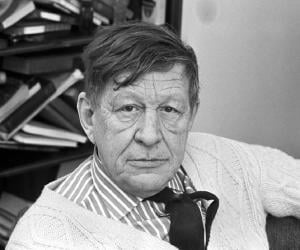83 Great Quotes By W. H. Auden
Wystan Hugh Auden was a British-American poet renowned for his technical adept and stylistic achievements. His poems covered subjects including social and political issues, religion, love and morals. In his popular collections such as ‘The Age of Anxiety’, ‘The Dyer's Hand’ and ‘The Orators’, contained significant works namely Funeral Blues, September 1, 1939, The Shield of Achilles, For the Time Being, Horae Canonicae and The Sea and the Mirror. Apart from his poetic work, he was also associated with creation of several musical collaboration and film scripts. Auden’s prose writing involved reviews on psychological, literary and religious subjects. Proclaimed by Joseph Brodsky as the greatest mind in the 20th century, much of Auden’s work became popular after his death. Throughout his literary career, he was constantly compared with the likes of W. B. Yeats and T. S. Eliot. His satirical and ironically clipped style of writing inspired many young poets such as Charles Madge, Stephen Spender, Cecil Day-Lewis, and Louis MacNeice. His poems and writing covered a broad spectrum of subjects. We have collected his most notable quotes and thoughts from his poems and writings. Let us go through some of the greatest quotes by this British poet.
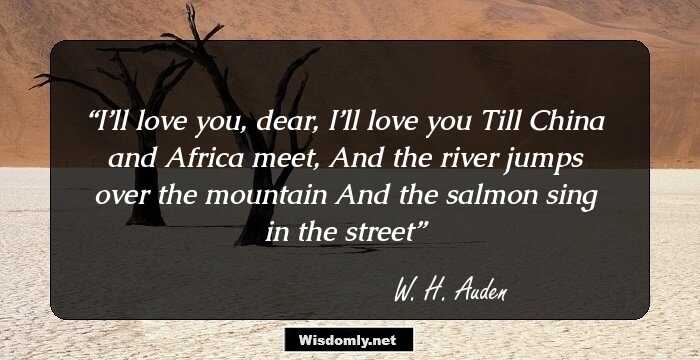
I’ll love you, dear, I’ll love you Till China and Africa meet, And the river jumps over the mountain And the salmon sing in the street
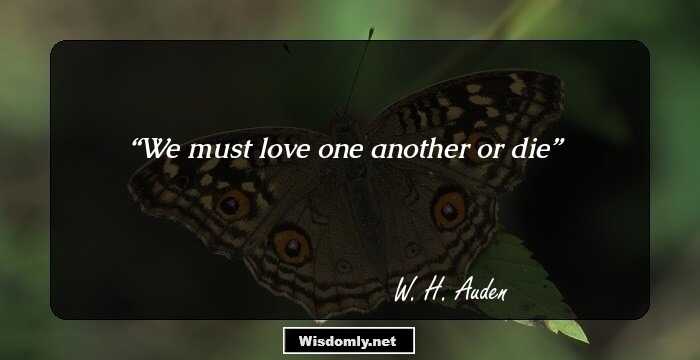
We must love one another or die
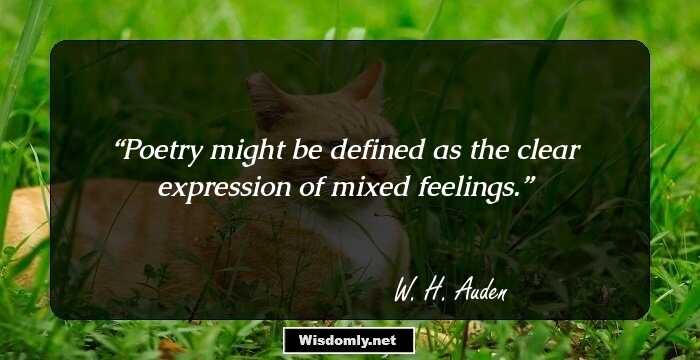
Poetry might be defined as the clear expression of mixed feelings.
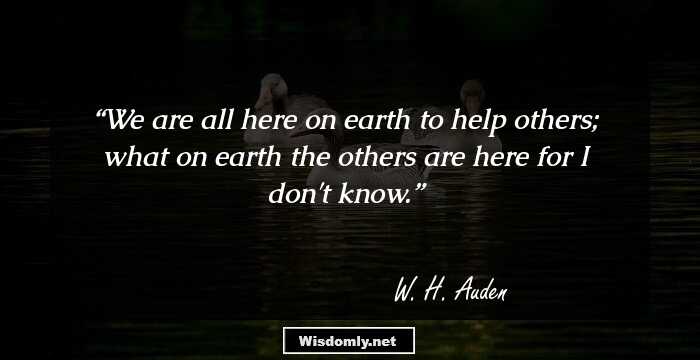
We are all here on earth to help others; what on earth the others are here for I don't know.
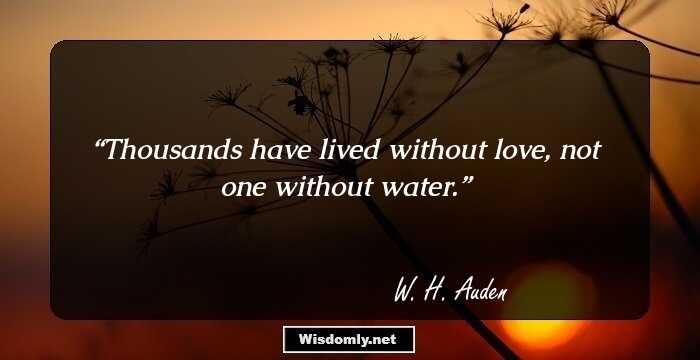
Thousands have lived without love, not one without water.
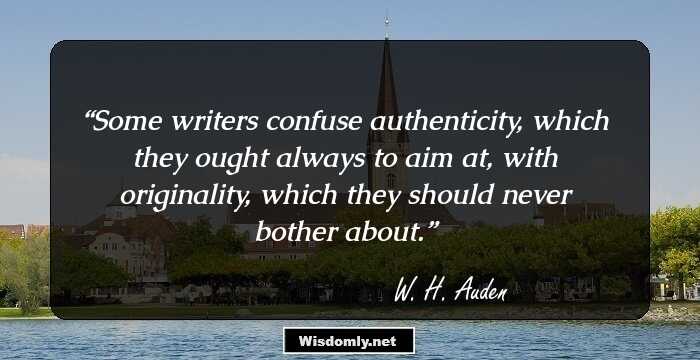
Some writers confuse authenticity, which they ought always to aim at, with originality, which they should never bother about.
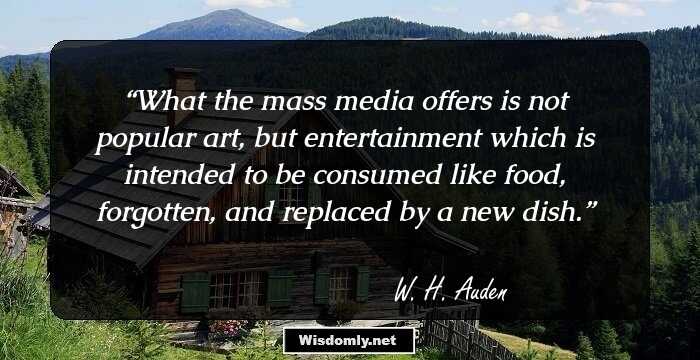
What the mass media offers is not popular art, but entertainment which is intended to be consumed like food, forgotten, and replaced by a new dish.
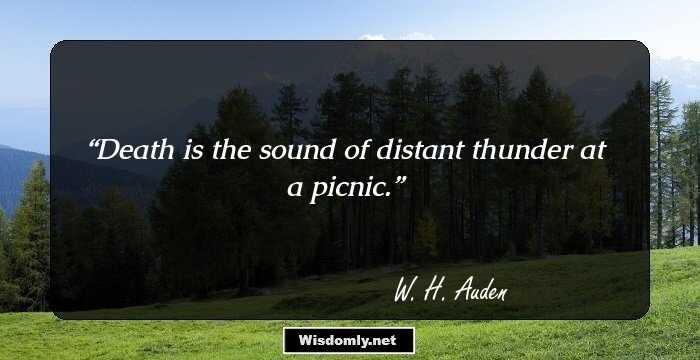
Death is the sound of distant thunder at a picnic.
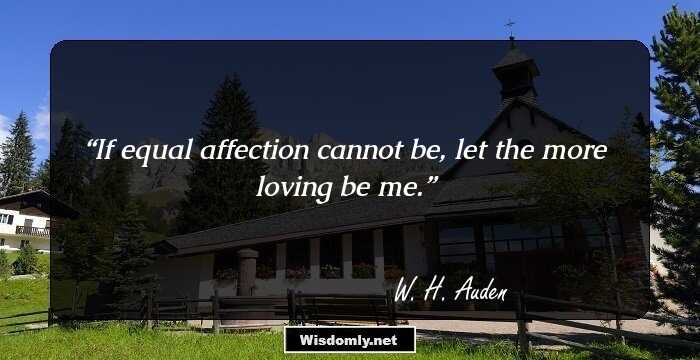
If equal affection cannot be, let the more loving be me.
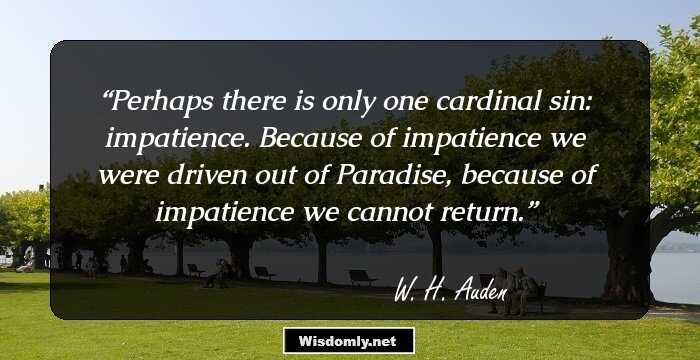
Perhaps there is only one cardinal sin: impatience. Because of impatience we were driven out of Paradise, because of impatience we cannot return.
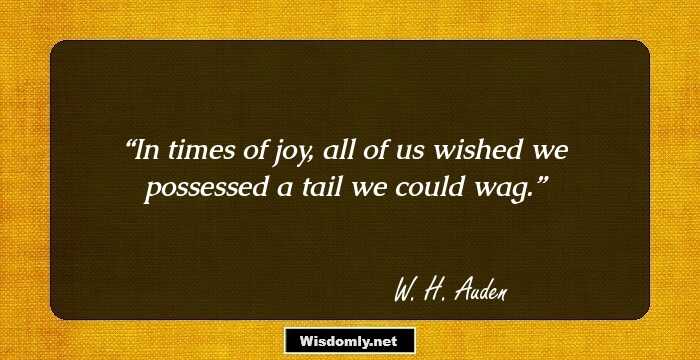
In times of joy, all of us wished we possessed a tail we could wag.
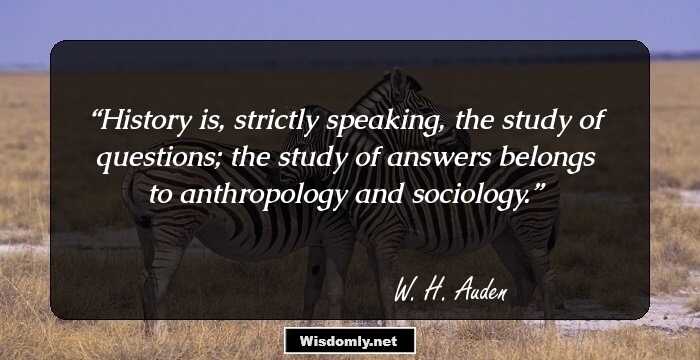
History is, strictly speaking, the study of questions; the study of answers belongs to anthropology and sociology.
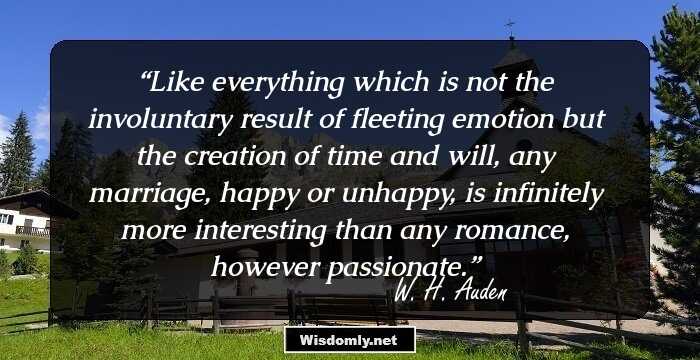
Like everything which is not the involuntary result of fleeting emotion but the creation of time and will, any marriage, happy or unhappy, is infinitely more interesting than any romance, however passionate.
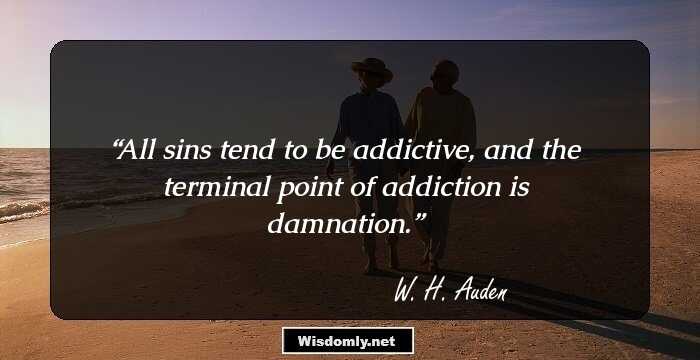
All sins tend to be addictive, and the terminal point of addiction is damnation.
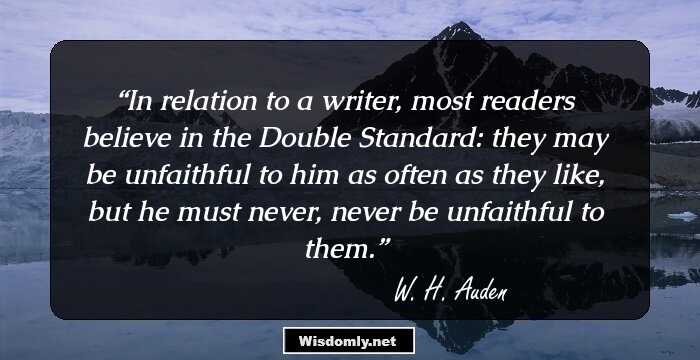
In relation to a writer, most readers believe in the Double Standard: they may be unfaithful to him as often as they like, but he must never, never be unfaithful to them.
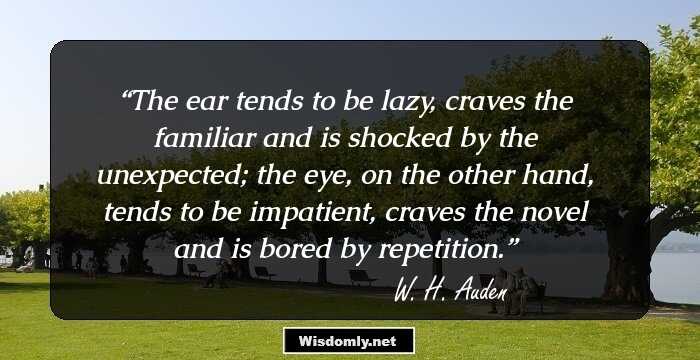
The ear tends to be lazy, craves the familiar and is shocked by the unexpected; the eye, on the other hand, tends to be impatient, craves the novel and is bored by repetition.
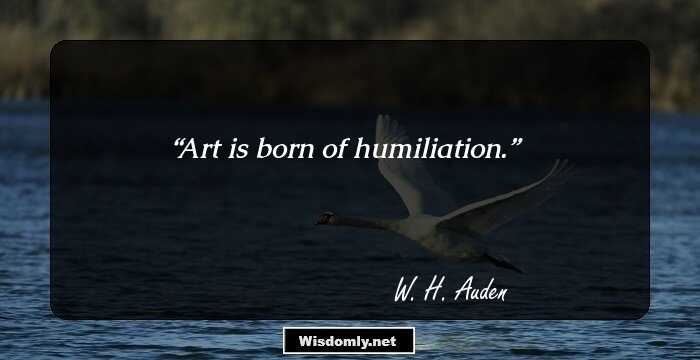
Art is born of humiliation.
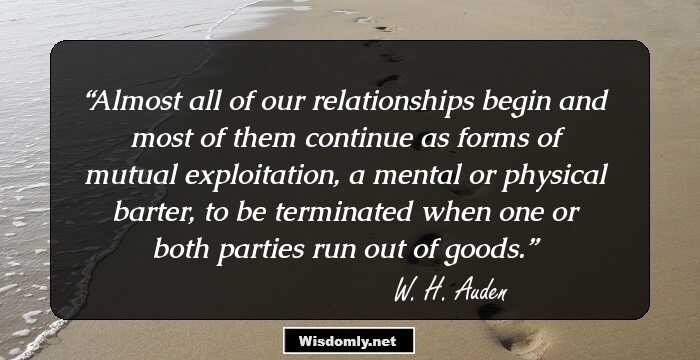
Almost all of our relationships begin and most of them continue as forms of mutual exploitation, a mental or physical barter, to be terminated when one or both parties run out of goods.
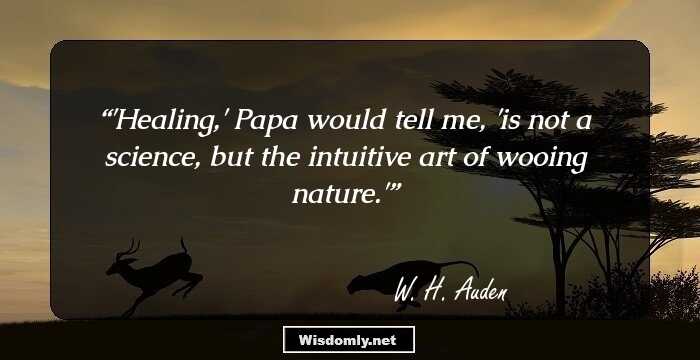
'Healing,' Papa would tell me, 'is not a science, but the intuitive art of wooing nature.'
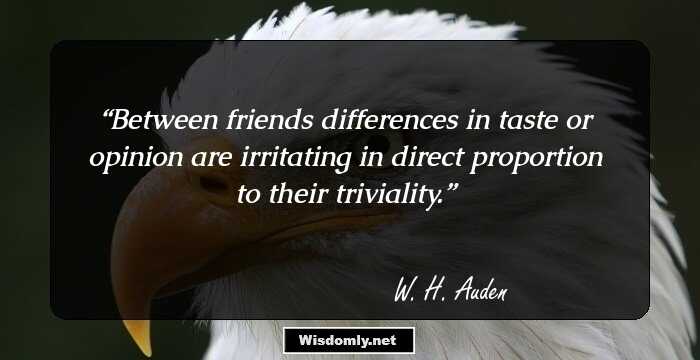
Between friends differences in taste or opinion are irritating in direct proportion to their triviality.
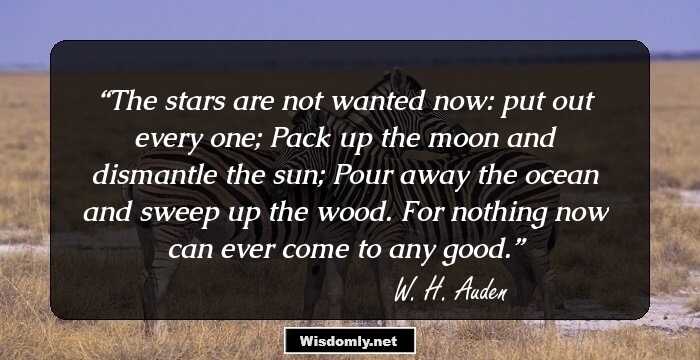
The stars are not wanted now: put out every one; Pack up the moon and dismantle the sun; Pour away the ocean and sweep up the wood. For nothing now can ever come to any good.
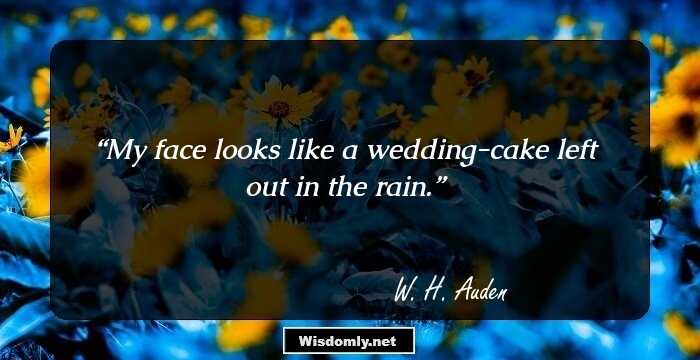
My face looks like a wedding-cake left out in the rain.
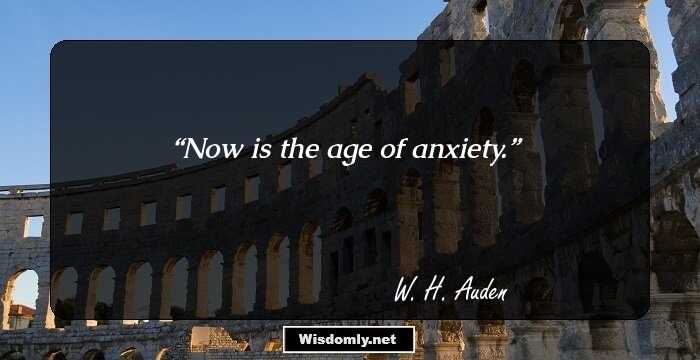
Now is the age of anxiety.
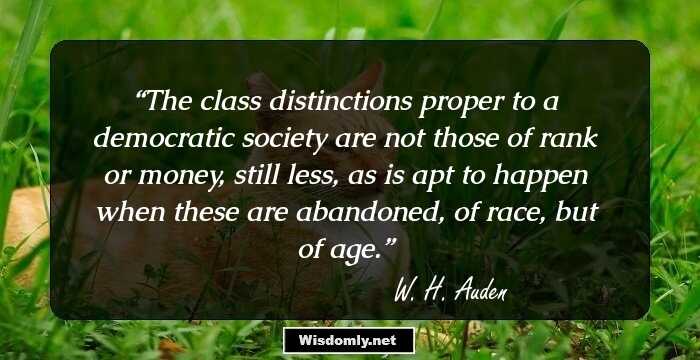
The class distinctions proper to a democratic society are not those of rank or money, still less, as is apt to happen when these are abandoned, of race, but of age.
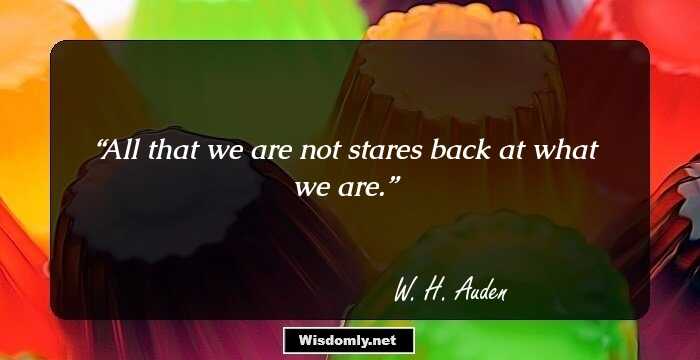
All that we are not stares back at what we are.
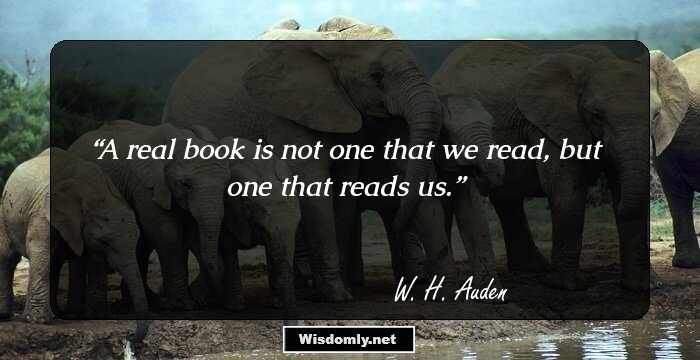
A real book is not one that we read, but one that reads us.

May it not be that, just as we have to have faith in Him, God has to have faith in us and, considering the history of the human race so far, may it not be that 'faith' is even more difficult for Him than it is for us?
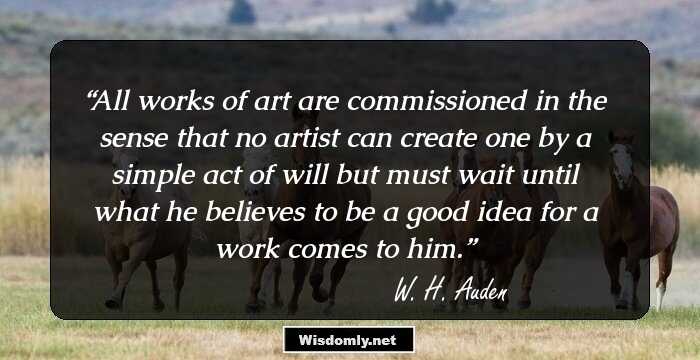
All works of art are commissioned in the sense that no artist can create one by a simple act of will but must wait until what he believes to be a good idea for a work comes to him.
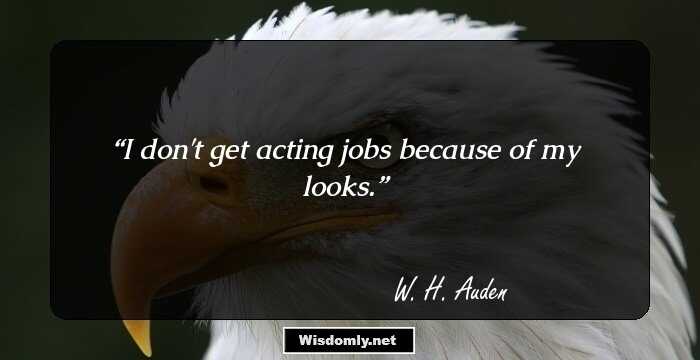
I don't get acting jobs because of my looks.
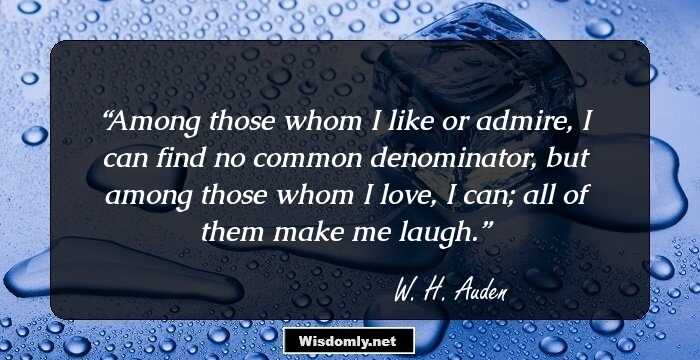
Among those whom I like or admire, I can find no common denominator, but among those whom I love, I can; all of them make me laugh.

